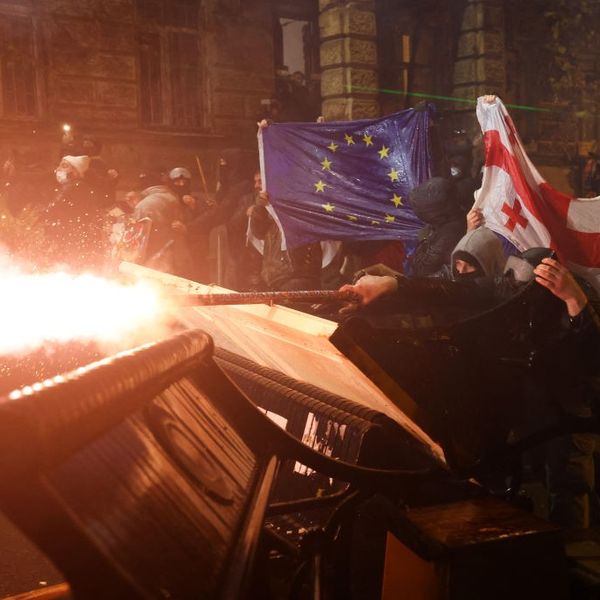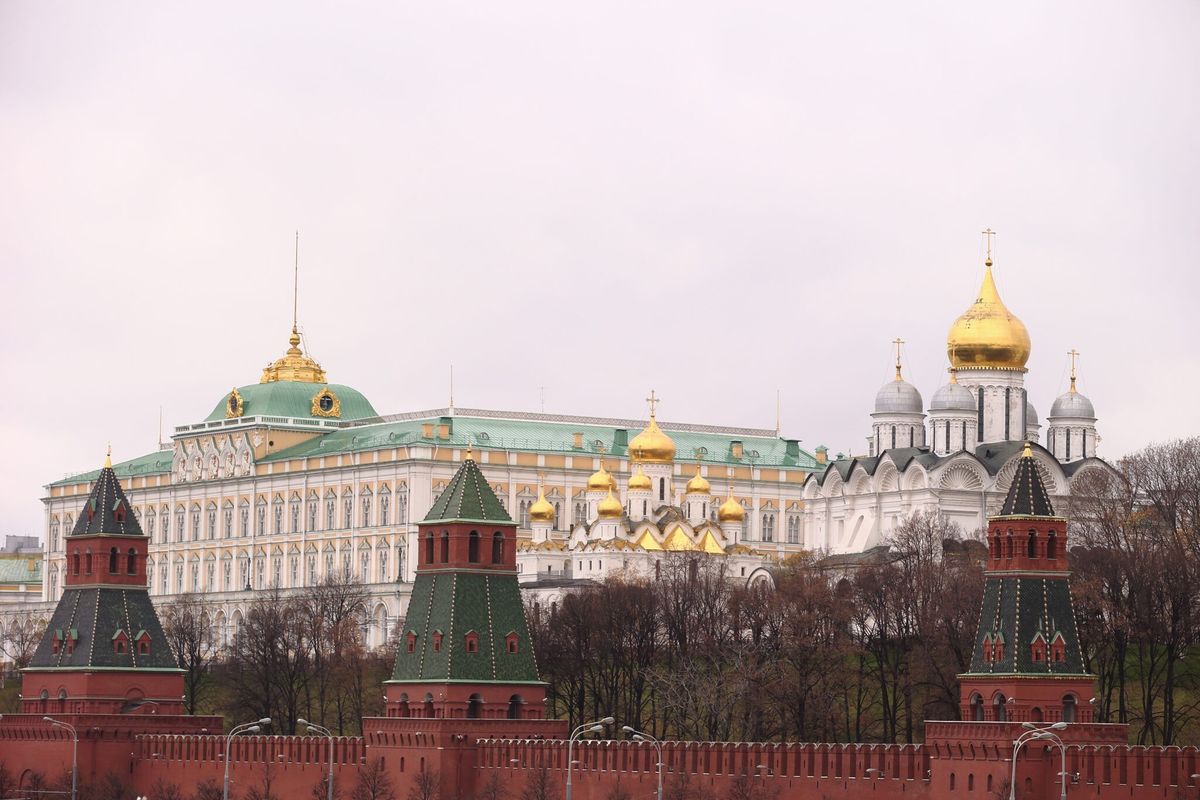OPINION — “Making a former president immune from criminal prosecution could make the presidency itself a profound threat to national security, as it would permit a president to use the great power of the office to further personal interests, such as securing reelection or attempting to avoid accountability for criminal abuse of power.”
That’s a quote from a Brief Amici Curiae filed with the Supreme Court on April 8, 2024, by 19 national security and military experts that include Joseph Votel, General (ret.) U.S. Army, Former Commanding General of U.S. Central Command; Alberto Mora, Former General Counsel, Department of the Navy, and Alexander Vershbow, Former Assistant Secretary of Defense and former Ambassador to NATO and Russia.
The Group of 19 opposes former-President Donald Trump’s claim that “no prosecutor or court can hold a former president accountable for either private or official capacity crimes committed while he is in office,” and that “this blanket immunity should endure permanently, including after a president has left office.”
Trump’s claims for absolute immunity from criminal prosecution for Presidential official acts, including those performed within the so-called “outer perimeter” of his official responsibility, have been already turned down at the Federal District Court and Federal Appeals Court levels.
On February 28, 2024, the Supreme Court agreed to take the case, scheduling oral arguments for April 25, with the question being, “Whether and if so to what extent does a former President enjoy presidential immunity from criminal prosecution for conduct alleged to involve official acts during his tenure in office?”
Among more than 40 Amicus Briefs filed so far, the Group of 19 plus two others self-identified as coming from former military and national security officials and some of their arguments are worth public review.
It's not just for the President anymore. Cipher Brief Subscriber+Members have access to their own Open Source Daily Brief, keeping you up to date on global events impacting national security. It pays to be a Subscriber+Member.
For example, the Group of 19 points out initially, “One of the most serious risks of presidential immunity for official capacity acts arises from the potential that the president may abuse his Commander-in-Chief authority, thereby placing the integrity of the armed forces at risk.”
The Group of 19, as an example, describe “the very real risk of a sitting president accused of committing crimes to remain in office. The risk of a president who commits crimes to avoid the transition of power is one of the gravest our democracy may face. Here we wish to highlight the risk that such crimes could be committed by making use of the U.S. Armed Forces.”
They note the Posse Comitatus Act forbids use of the armed forces for civilian law-enforcement purposes unless authorized by the Constitution or laws of the United States. But they argue in their brief, “The president could issue an illegal order for this purpose without ramification if the Petitioner’s [Trump’s] sought-for immunity for official acts were to be granted, and that order might very well be considered by military subordinates as falling within the ‘authorized by the Constitution’ exception to the [Posse Comitatus] Act.”
“The President might deploy troops to control polls,” the Group of 19 brief says, “as the present Petitioner himself once discussed in a December 18, 2020 meeting in the Oval Office according to the Report of the U.S. House January 6 Committee.”
Another Amici brief, from retired Four-Star Admirals, Generals and Former Military Service Secretaries, argues that if Trump’s absolute immunity claim were approved it has “the potential to severely undermine the Commander-in-Chief’s legal and moral authority to lead the military forces, as it would signal that they [the military], but not he, must obey the rule of law.”
This Four-Star group includes General Peter Chiarelli (ret,), Senior Military Assistant to Secretary of Defense Robert Gates and later Vice Chief of Staff of the Army, Former Secretary of the Army Louis Caldera, Admiral Samuel Jones Locklear, III (ret.), commander of U.S. Pacific Command, and General Charles Krulak (ret.), 31st Commandant of the Marine Corps.
Under Trump’s claim, the Retired Four-Stars argue, “The president could, with impunity, direct his national security appointees to, in turn, direct members of the military to execute plainly unlawful orders, placing those in the chain of command in an untenable position and irreparably harming the trust fundamental to civil-military relations.”
Both the Group of 19 and the Retired Four-Stars in their Amici briefs deal with that dilemma created within the chain of command by a presidential order which may be illegal.
Military service members, who are bound to obey all lawful orders, also have a duty to disobey unlawful orders.
“Immunizing the Commander-in-Chief from criminal prosecution,” the Retired Four-Stars say in their brief, “would fly in the face of that duty, creating the likelihood that service members will be placed in the impossible position of having to choose between following their Commander-in-Chief and obeying the laws enacted by Congress.”
The Group of 19 brief identifies a fear that “in the case of an illegal order, the mere fact that it was issued by a president would guarantee uncertainty as to its legality, with the result that obedience could provide a complete defense to any criminal prosecution arising therefrom. This sharply reduces the likelihood that a subordinate officer will refuse to obey a president’s orders, even though immunity from prosecution increases the incentive of the President to issue illegal orders.”
Looking for a way to get ahead of the week in cyber and tech? Sign up for the Cyber Initiatives Group Sunday newsletter to quickly get up to speed on the biggest cyber and tech headlines and be ready for the week ahead. Sign up today.
The Group of 19 also note, although the illegality of a military order is an affirmative defense to a refusal to obey, “it is presumed that orders are lawful, and a defendant charged with disobeying orders bears the burden of establishing illegality.”
Subordinates in the military chain of command who are aware that the Commander-in-Chief is immune from prosecution, “may believe this renders any order legal for purposes of their duty to obey,” the Group of 19 say, adding, “Others may reach a different conclusion, especially as senior officers in the chain of command will tend to rely on legal advisors to determine legality. This could easily result in chaos, with different commanders in the same chain reaching disparate conclusions as to their duty to obey or disobey.”
Thus, argues the Group of 19, “fear [of] liability for executing illegal orders” could thus cause “hesitation to execute other lawful commands of the President and civilian officers. Often there is little time to assess whether an order is legal; a subordinate must be able to rely on the legality of all presidential orders, yet this reliance would be unavailable were Petitioner’s theory to hold sway.”
In seeking blanket immunity, the Trump brief to the Supreme Court said, “The president’s ‘personal vulnerability,’ to criminal prosecution, with its greater stigma and far more severe penalties, provides a much graver deterrent to ‘bold and unhesitating action’ in making ‘the most sensitive and far-reaching decisions entrusted to any official under our constitutional system.’”
The retired four-stars in their Amici brief answer by saying, “Petitioner’s contention that the availability of criminal prosecution would deter the president from taking the bold action the office requires, including military action, is profoundly ahistorical: the absence of absolute immunity has been assumed since the Founding and has presented no challenge to presidents discharging their duties.”
Another issue taken up by the military Amici briefs arose out of a highly publicized hypothetical question that was posed to Trump’s lawyer by a judge on the D.C. Court of Appeals.
The judge had asked, “Could a president who ordered SEAL Team 6 to assassinate a political rival, who was not impeached, would he be subject to criminal prosecution?”
Three former Trump military officials, in yet another military-oriented Amici brief, describe Trump’s lawyer saying, “his answer was a ‘qualified yes,’ by which he meant no. He explained that prosecution would only be permitted if the president were first impeached by the House and convicted by the Senate.”
Lt. General Keith Kellogg, (ret.), Trump’s National Security Council Chief of Staff and Executive Secretary; Lt. General William “Jerry” Boykin (ret.), former commander of Delta Force and currently executive vice president of the Family Research Council; and Robert Wilkie, Trump’s Secretary of the Department of Veteran Affairs, say in their brief, “The President has no authority to order the military to assassinate a political rival. Furthermore, the military is required not to carry out such an unlawful, non-military order, if given.”
The three labeled their brief as “Supporting Petitioner,” meaning Trump, but their Amici brief, the three said, “Whether or not a President has the immunity claimed by Petitioner [Trump] in this case—[is] a question Amici do not address in this brief.”
The Group of 19 in their brief to the Supreme Court referred to the three Trump officials’ brief saying, “Note that these Amici decline to address the question whether the President would also be guilty of murder. They acknowledge the illegality of such an order yet avoid the obvious corollary that if the President is emboldened by immunity to issue an illegal order, the military command structure will be infected with distrust and disarray.”
The Retired Four-Stars refer in their brief to the presidential transition, the time after an election when a newly elected president prepares to succeed an incumbent. They describe “grave risks from an unstable presidential transition would be worse still if the president faced no accountability for undertaking criminal conduct to prevent the peaceful transition of power. As just one example, the Joint Chiefs might issue a directive to recognize a new duly elected president only to have that order contradicted by a deposed president who wishes to stay in power. Such a situation would implicate the fraught decisions faced by service members confronting unlawful orders.”
The Retired Four-Stars conclude, “Our laws should not add to their [service members] burden by introducing further ambiguities as to which superior orders to follow. Instead, our laws should continue to provide service members with clear and consistent rules and standards that apply uniformly along the entire chain of command.”
Their brief continues, “To that end, our legal system does and should continue to subject the president to criminal laws—just like every other individual in the chain of command—thereby lessening the likelihood that unlawful orders are issued in the first instance and reducing the risk that service members would be required to engage the precarious safety valve of the duty to disobey.”
I agree.
The Cipher Brief is committed to publishing a range of perspectives on national security issues submitted by deeply experienced national security professionals.
Opinions expressed are those of the author and do not represent the views or opinions of The Cipher Brief.
Have a perspective to share based on your experience in the national security field? Send it to Editor@thecipherbrief.com for publication consideration.
Read more expert-driven national security insights, perspective and analysis in The Cipher Brief
















